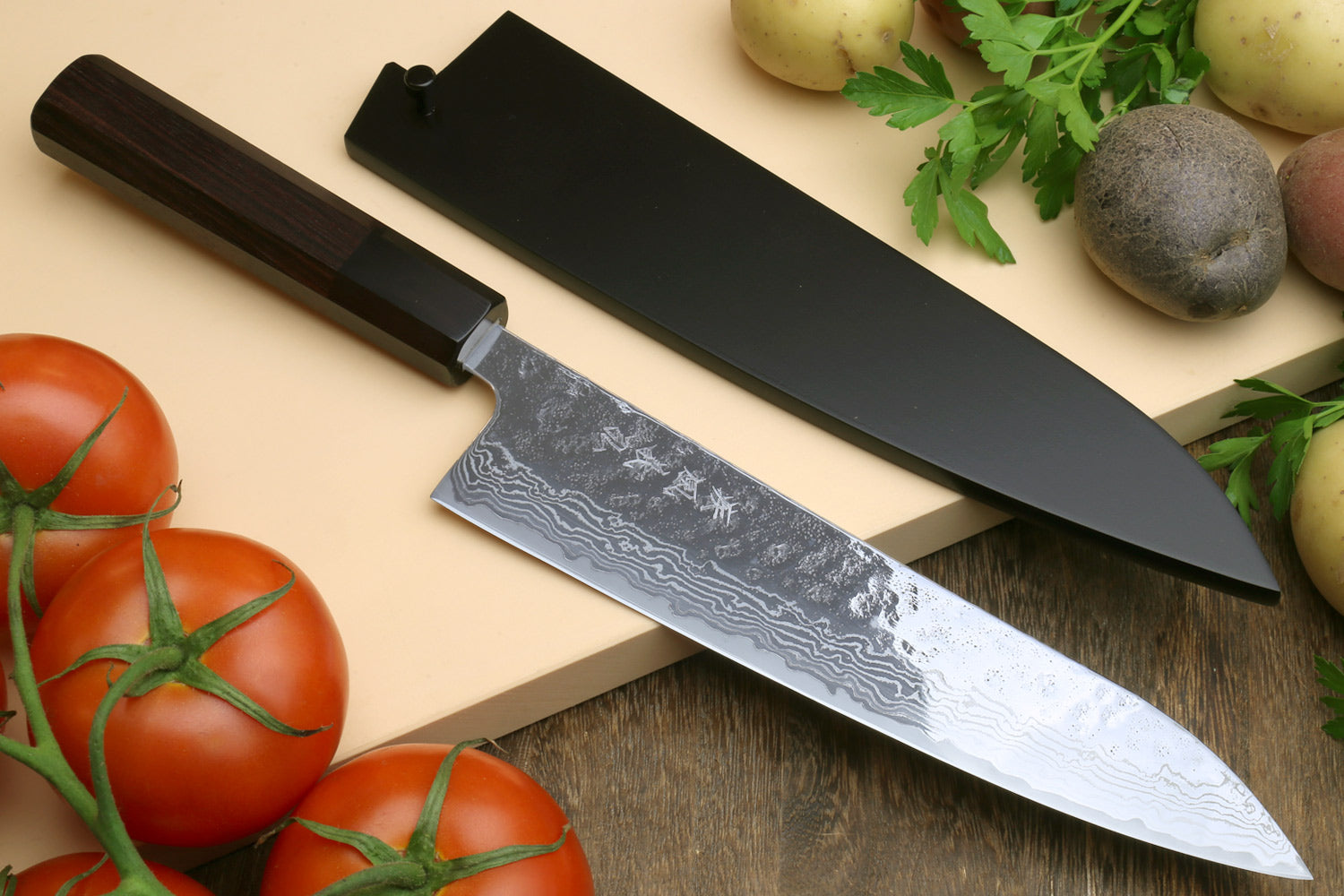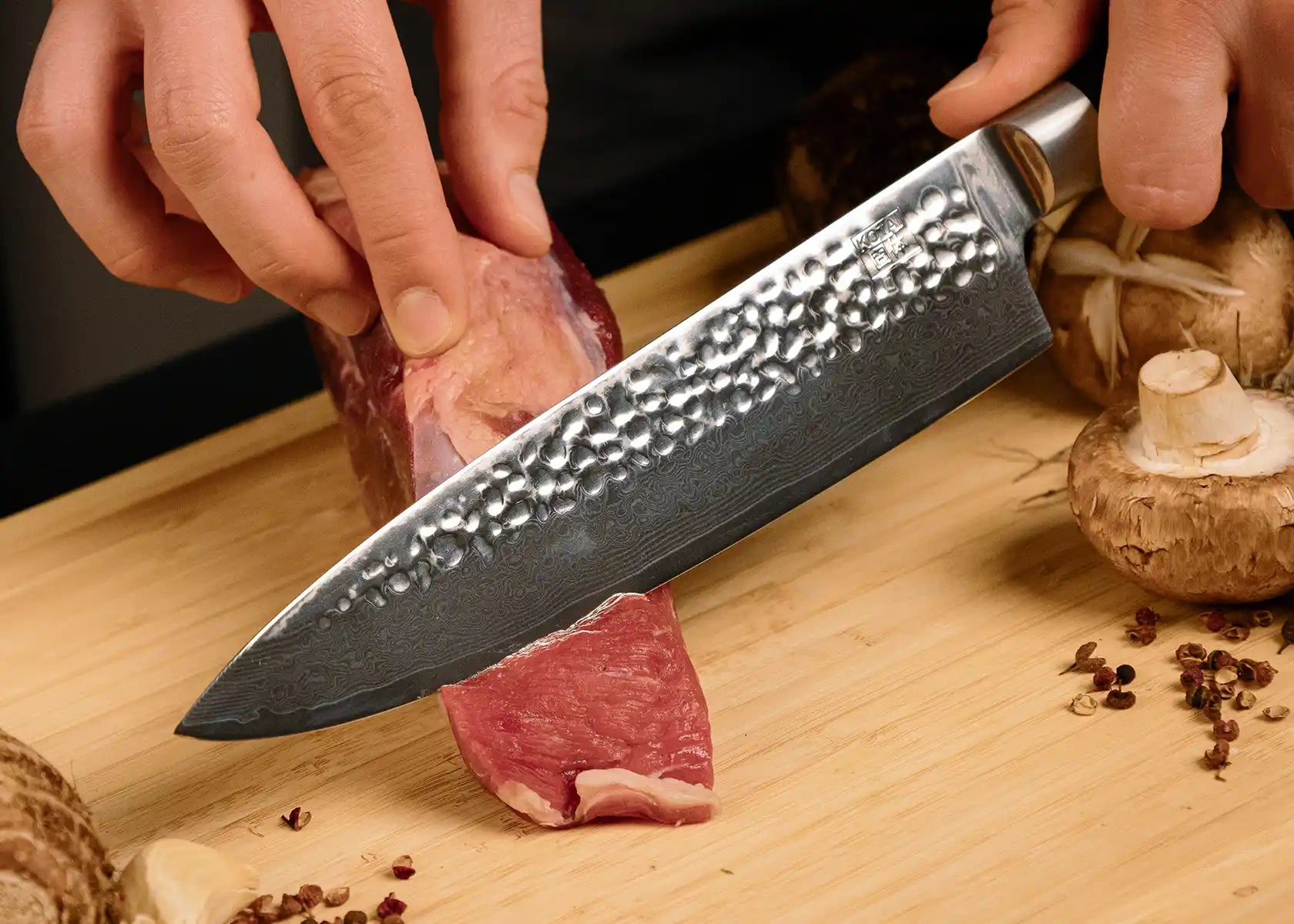In the bustling environment of a professional kitchen, knives play an irreplaceable role. Among these, the prestigious Damascus knife holds a special place, not only for its stunning aesthetics but also for its exceptional functionality. The unique patterns on these knives, resulting from the meticulous layering of different steel types, need special attention to maintain their integrity and visual appeal. Understanding protecting the Damascus knife finish is crucial for every kitchen professional aiming to enhance both the beauty and longevity of these remarkable tools.

Understanding Damascus Steel
Before delving into protection methods, it's essential to grasp what makes Damascus steel so unique. Originating from ancient Middle Eastern civilizations, Damascus steel knives are crafted through a process that involves welding multiple layers of steel, creating distinct, wavy patterns that are both beautiful and functional. As a kitchen professional, knowing the history of Damascus steel enriches your connection to your tools and fosters appreciation for their craft.
Common Threats to Damascus Knife Finish
The professional kitchen is an environment teeming with potential threats to a Damascus knife's finish. Factors such as exposure to moisture, cleaning agents, and improper storage can contribute to tarnishing or corrosion. Maintaining these knives extends beyond simple cleaningit's about adopting a holistic care approach.
Moisture: The Silent Culprit
Moisture is one of the primary enemies of Damascus steel. Prolonged exposure can lead to rusting and deterioration of the knife's layered finish. Ensuring your knife is thoroughly dried after cleaning is a fundamental step in preserving its beauty.
Cleaning Knowledge: What to Avoid
Regular cleaning is essential, but it's crucial to use the right techniques and products. Harsh detergents and abrasive sponges can damage the intricate patterns. Instead, use mild soap, soft sponges, and gentle drying cloths. Discover more about effective cleaning techniques on our blog on cleaning Damascus kitchen knives.
Techniques for Protecting Damascus Knife Finish
To protect the Damascus knife finish effectively, several practical techniques should be employed by kitchen professionals. These range from correct cleaning methods to appropriate storage solutions, all aimed at preserving the knife's functionality and aesthetics.
Regular Oiling
Applying a light coat of oil on the blade is an excellent way to prevent moisture buildup. Specialty oils like camellia or mineral oil serve as barriers, repelling water and reducing the risk of rust. Regularly oiling your blade ensures that it remains in top condition, ready to tackle any kitchen task.
Proper Storage
Storing knives incorrectly is a common mistake that can have damaging effects. Avoid piling knives together in a drawer as they may rub against each other, leading to scratches. Instead, consider utilizing magnetic strips or dedicated knife blocks designed for Damascus knives. For further insights, our post on storing Damascus knives safely offers comprehensive guidance.
The Role of Technique in Knife Longevity
Techniques used while using your knives can also have a significant impact on maintaining their finish. Avoid using the knife on hard surfaces like granite or glass, which can dull or chip the blade.
Selecting the Right Cutting Boards
Using appropriate cutting boards ensures your knife's longevity. Opt for softer materials, such as wood or bamboo, instead of hard surfaces that can wear down your knife. Learn more about the benefits of specific materials in our article about paring vs. utility knife in Damascus.
Conclusion
In the world of culinary arts, maintaining the finish of a Damascus knife is as much about preserving its aesthetic charm as it is about ensuring peak performance in every culinary endeavor. By adopting these practices, you're not just caring for a tool but enriching each culinary creation with the heritage and craftsmanship that a Damascus knife embodies. For further reading on using these knives effectively, consider browsing our tips for using Damascus knives.

FAQs
How often should I oil my Damascus knife?
It's advisable to oil your Damascus knife every couple of weeks, or more frequently if you use it regularly. This practice keeps rust at bay and maintains the stunning patterns on the blade.
Can I sharpen my Damascus knife at home?
While it's possible to sharpen Damascus knives at home, precision and technique are paramount to avoid damaging the blade. Professional sharpening services are recommended to ensure optimal longevity and performance.
Why are cutting boards important for knife care?
Cutting boards made of softer materials help maintain the sharpness and finish of your Damascus knife. Hard surfaces can lead to dulling and potentially damage the intricate layered patterns on the blade.
This article contains affiliate links. We may earn a commission at no extra cost to you.


























